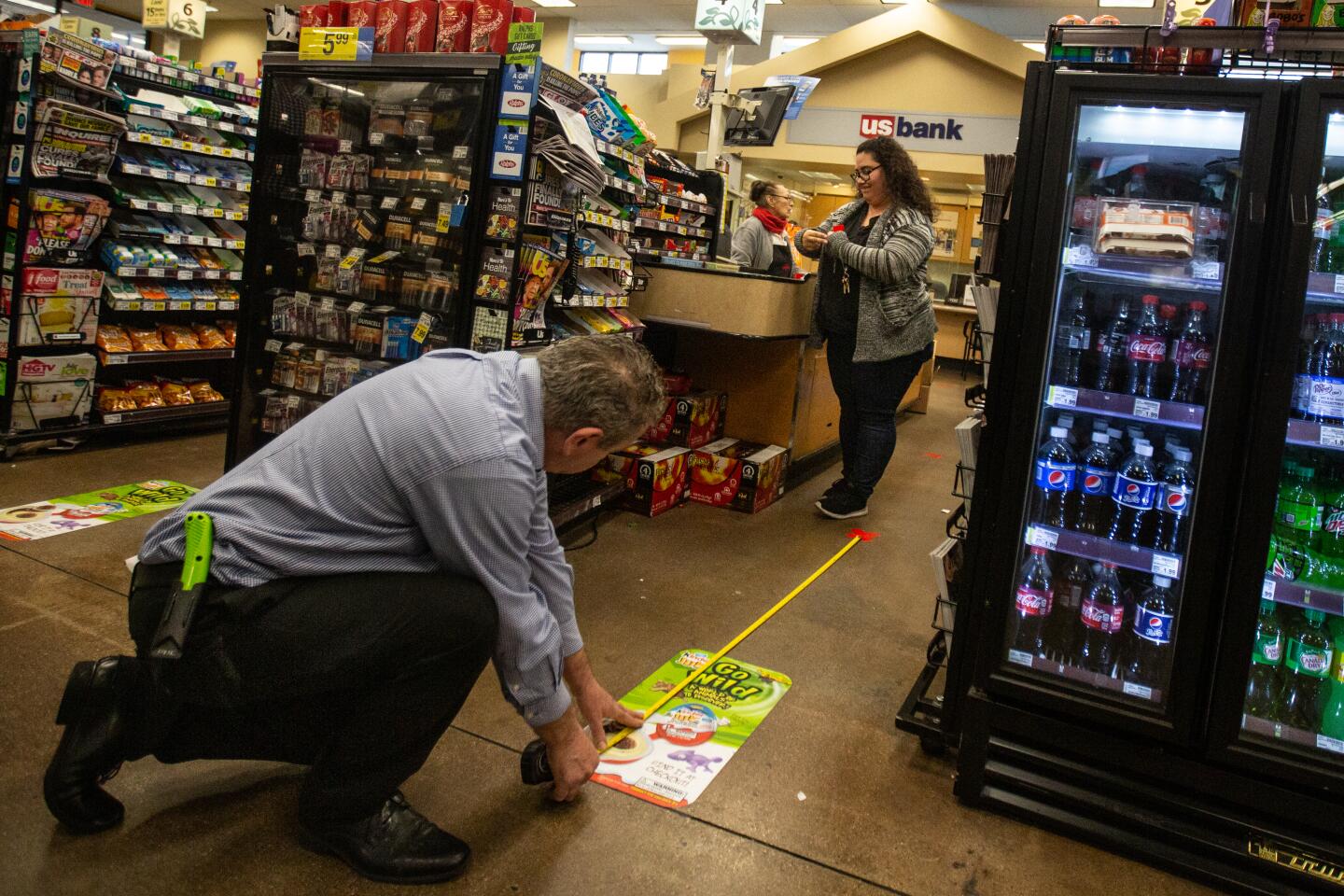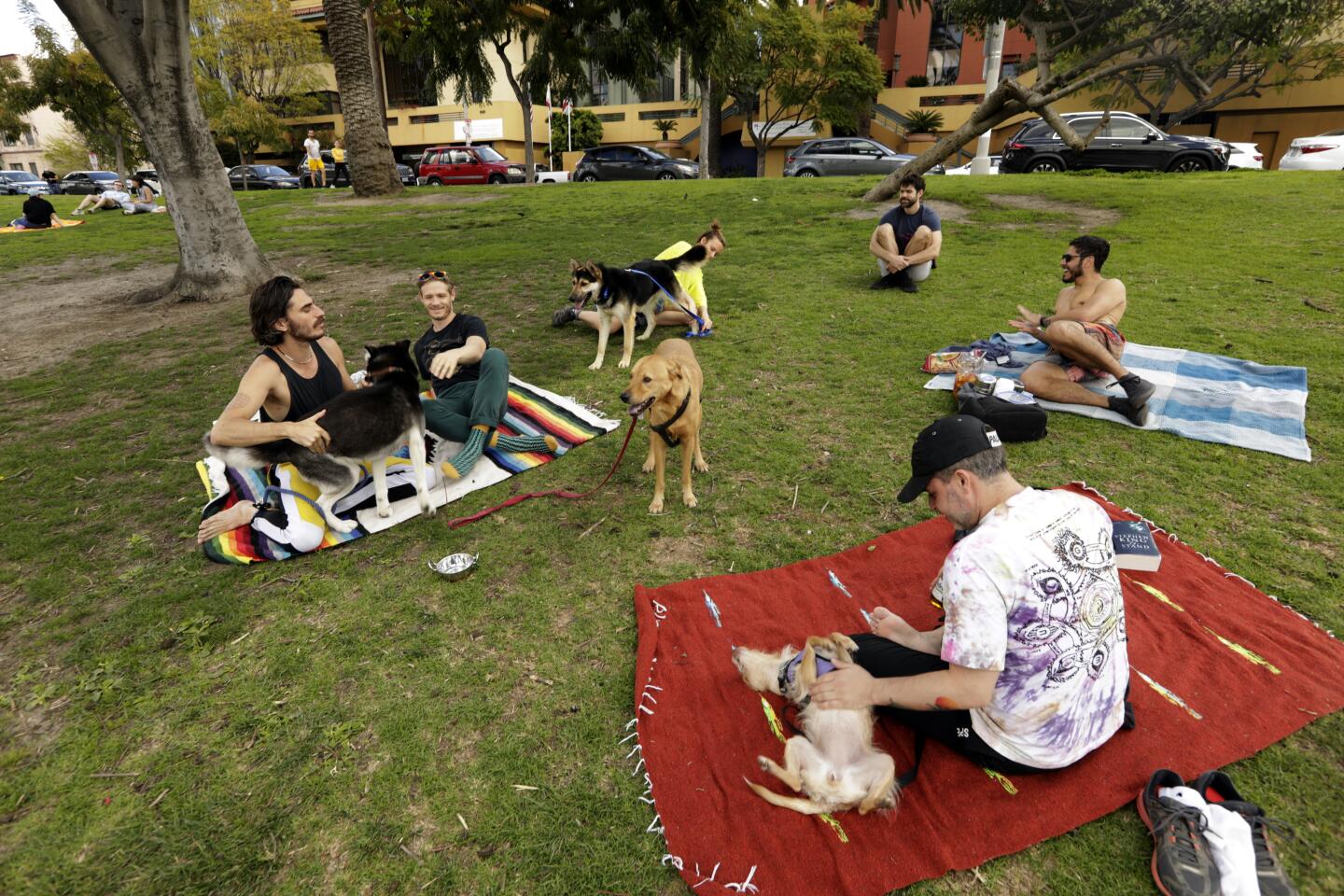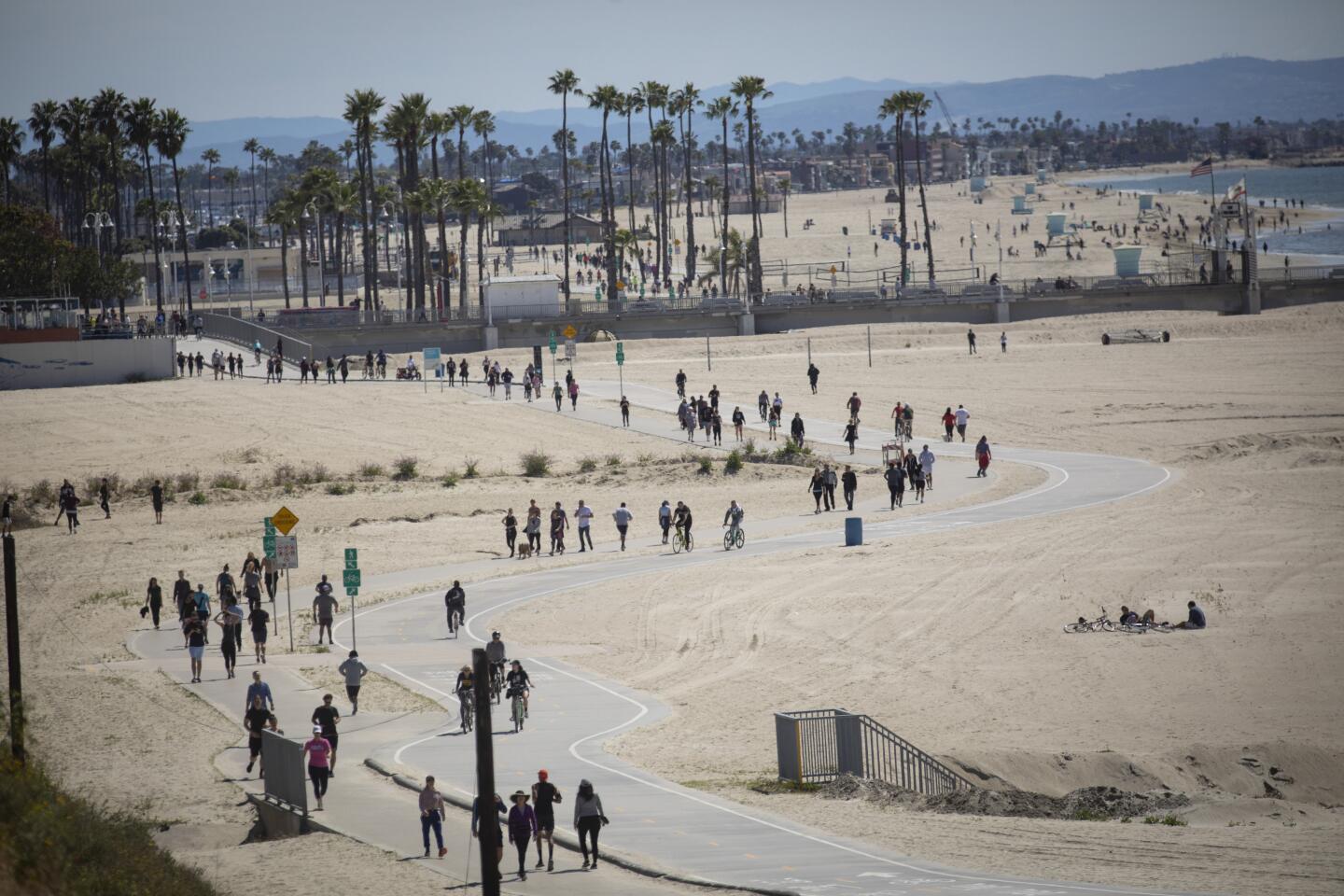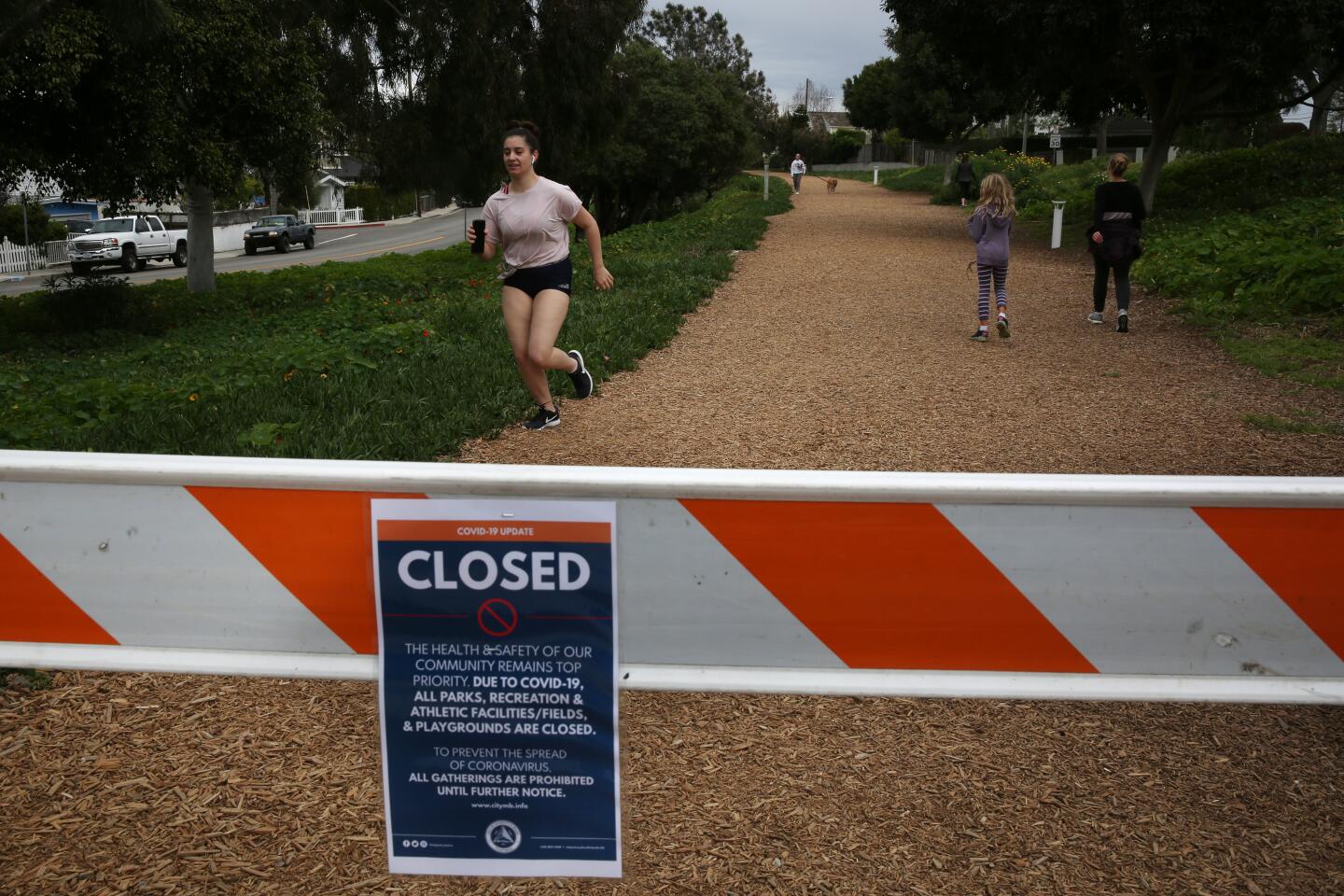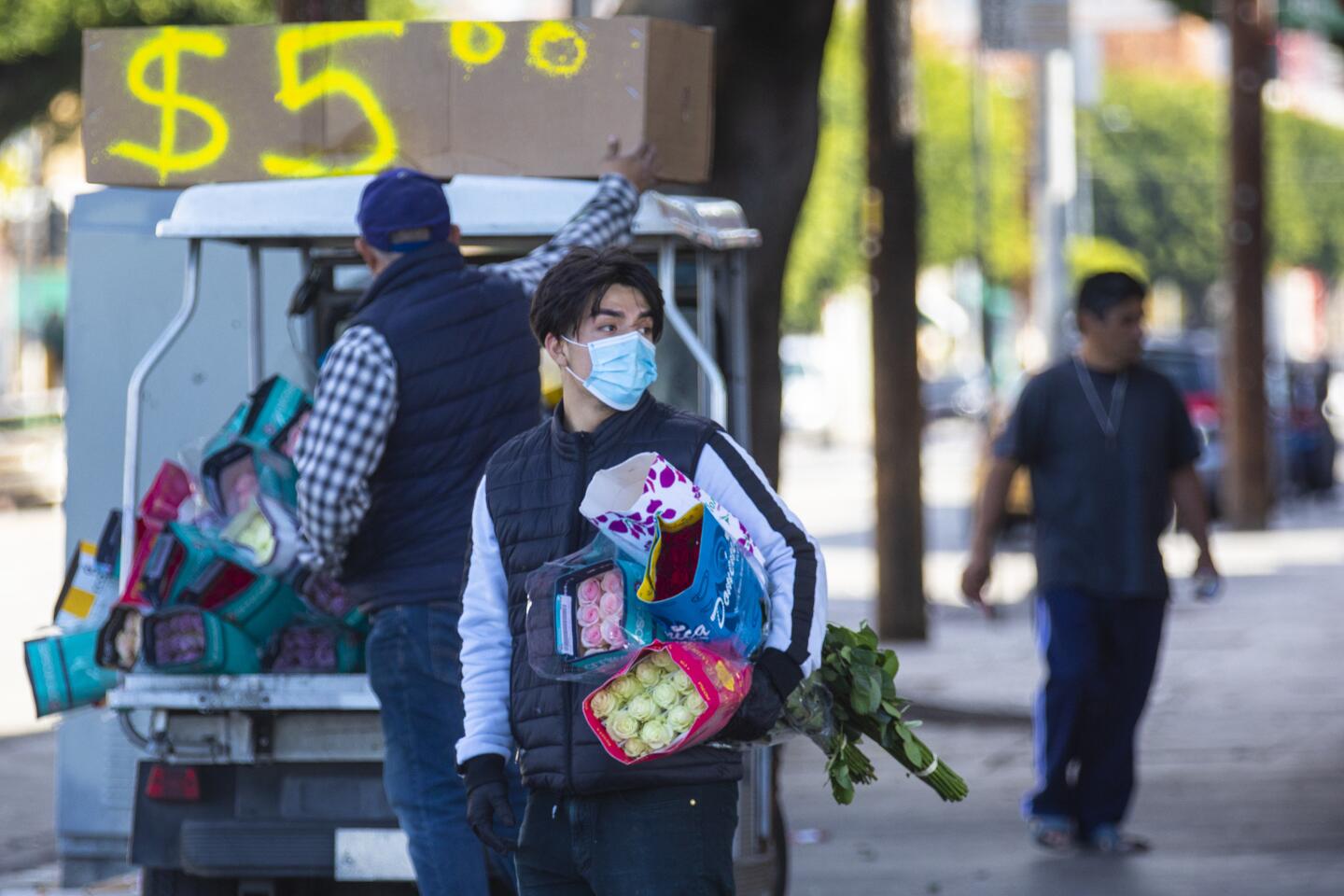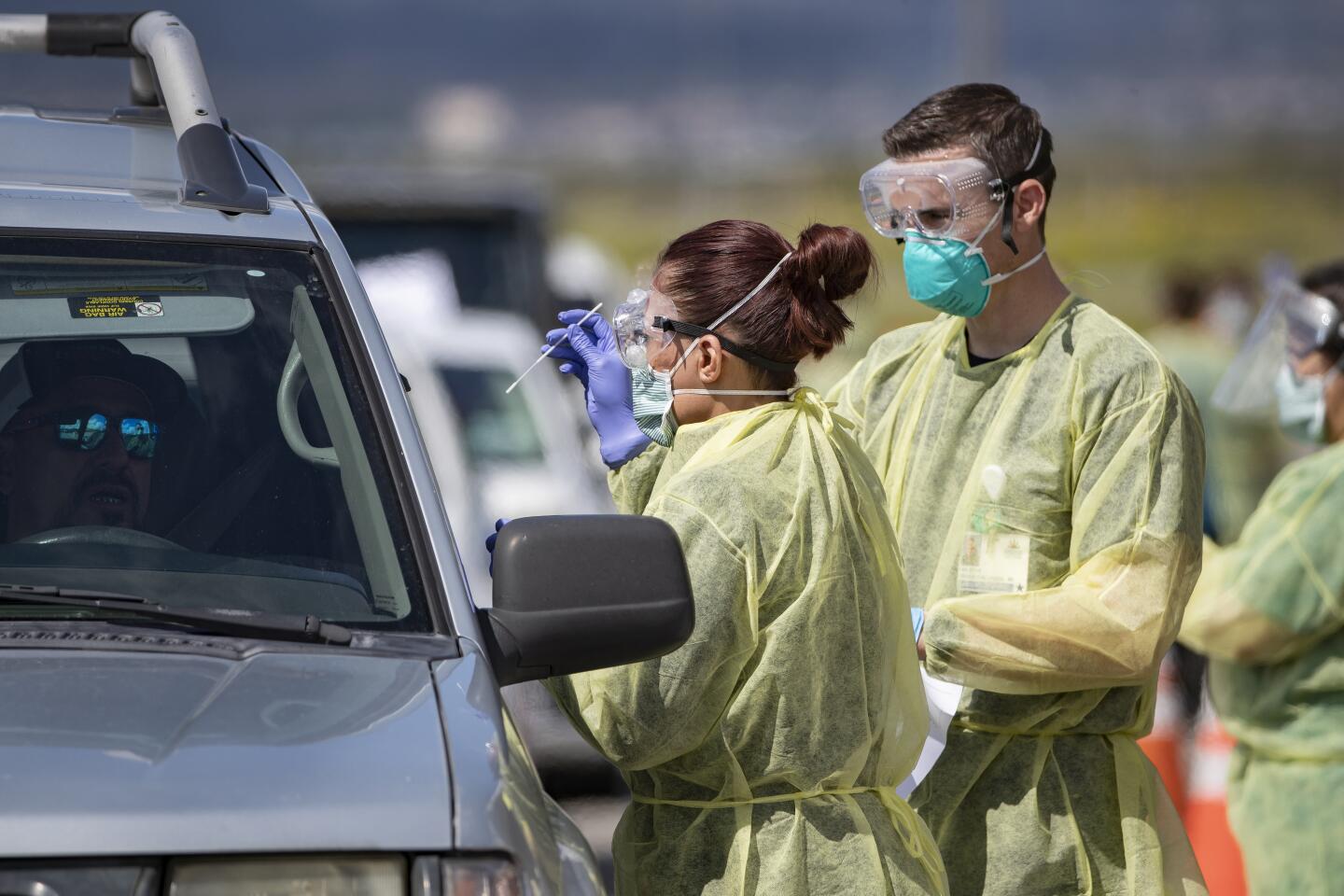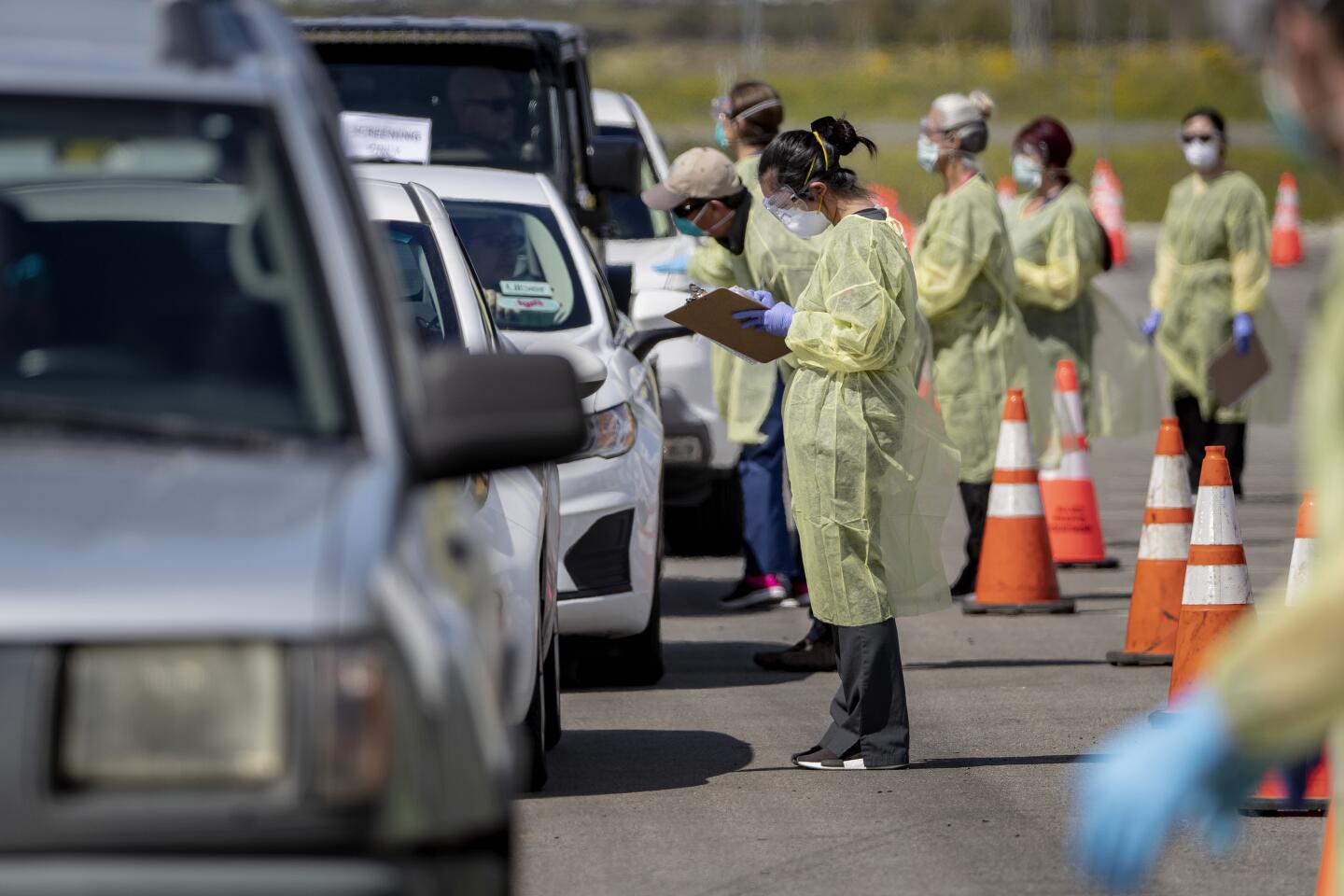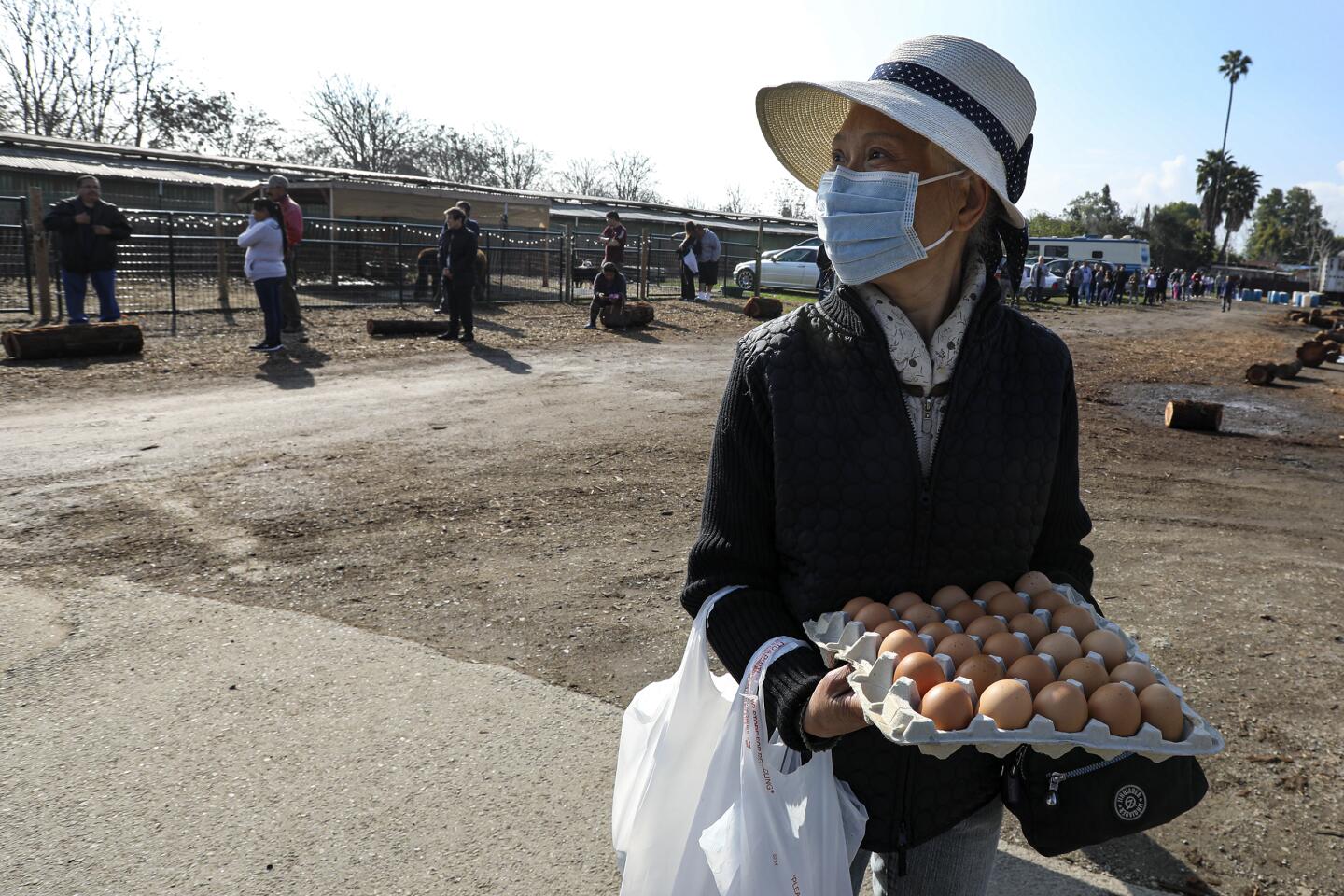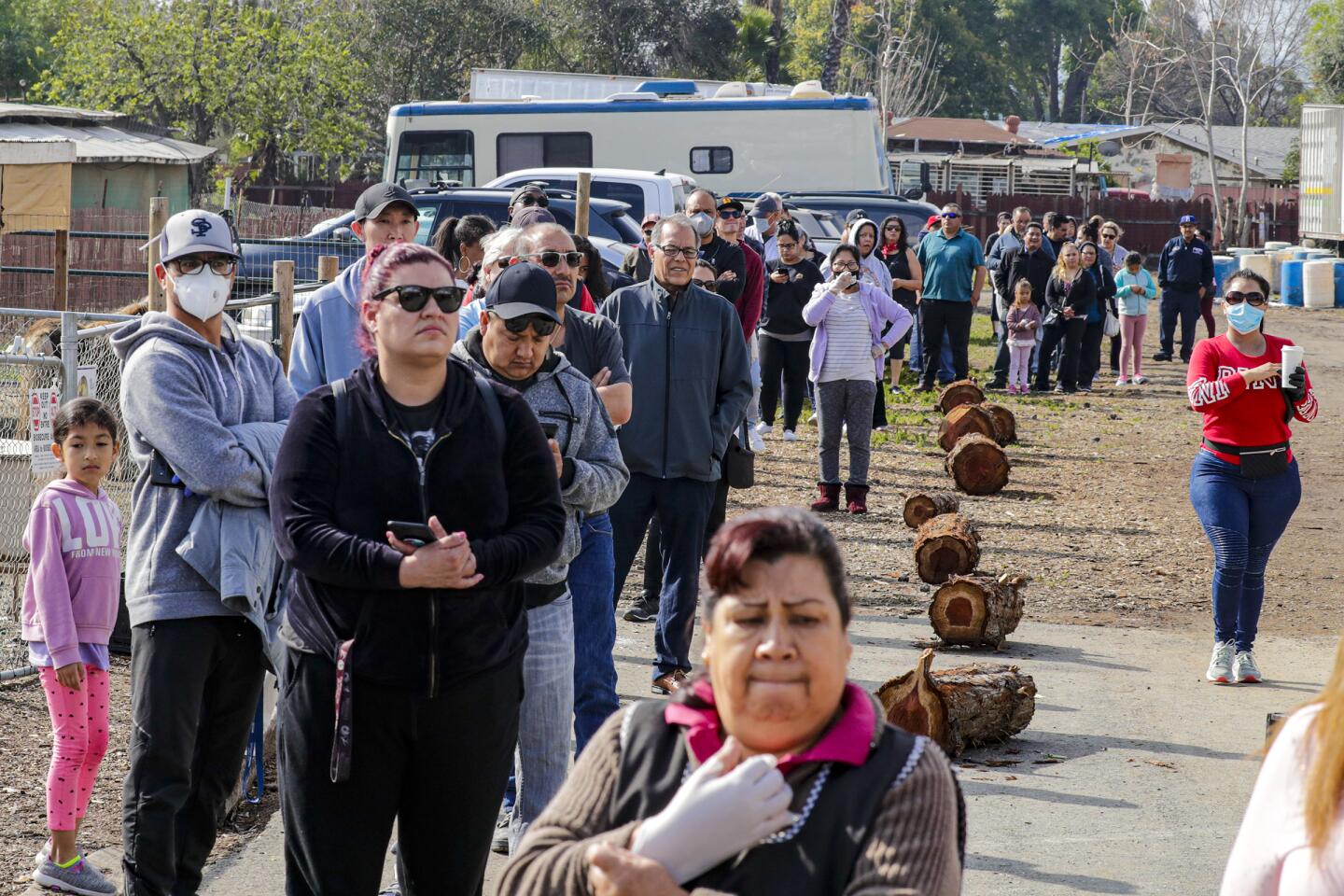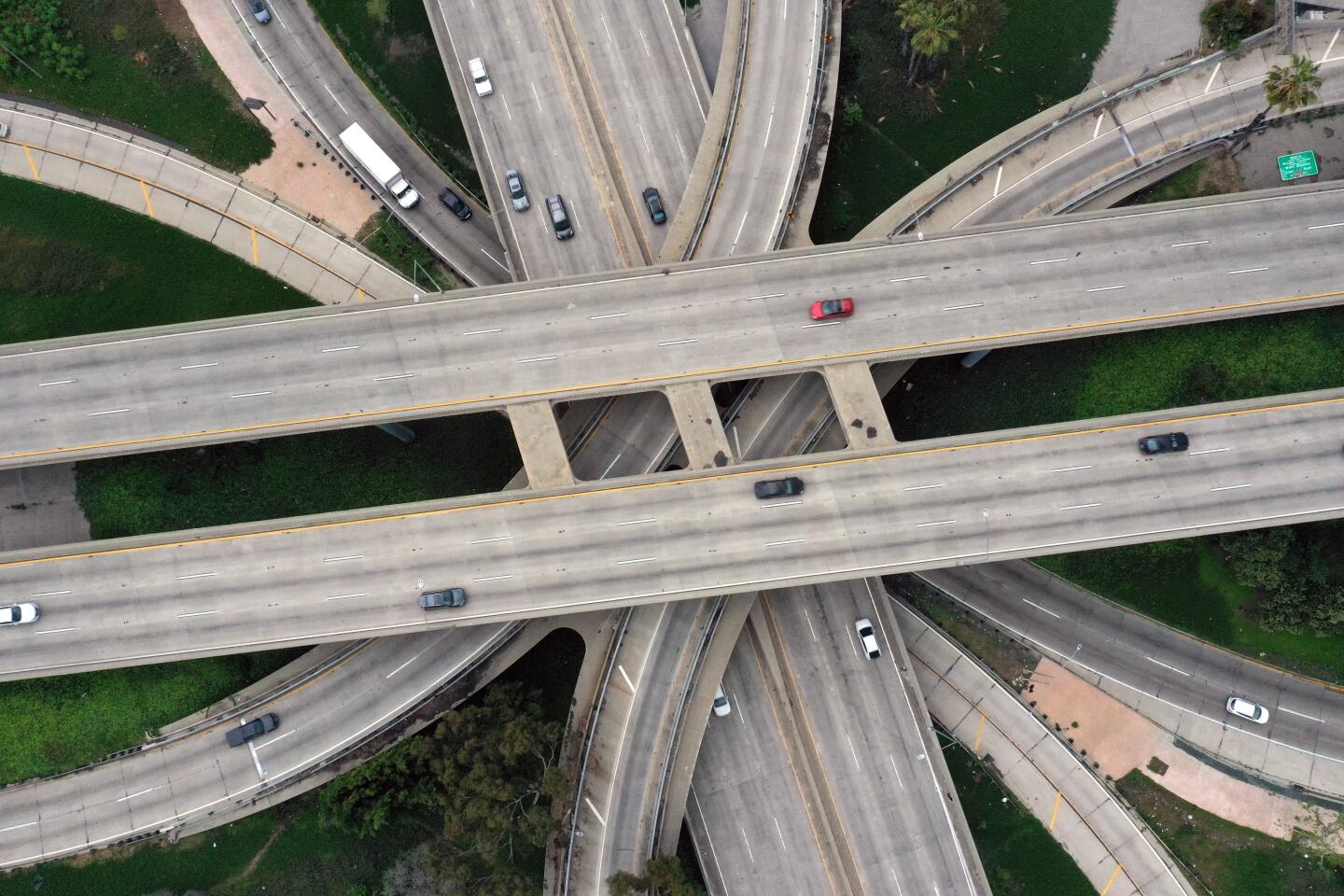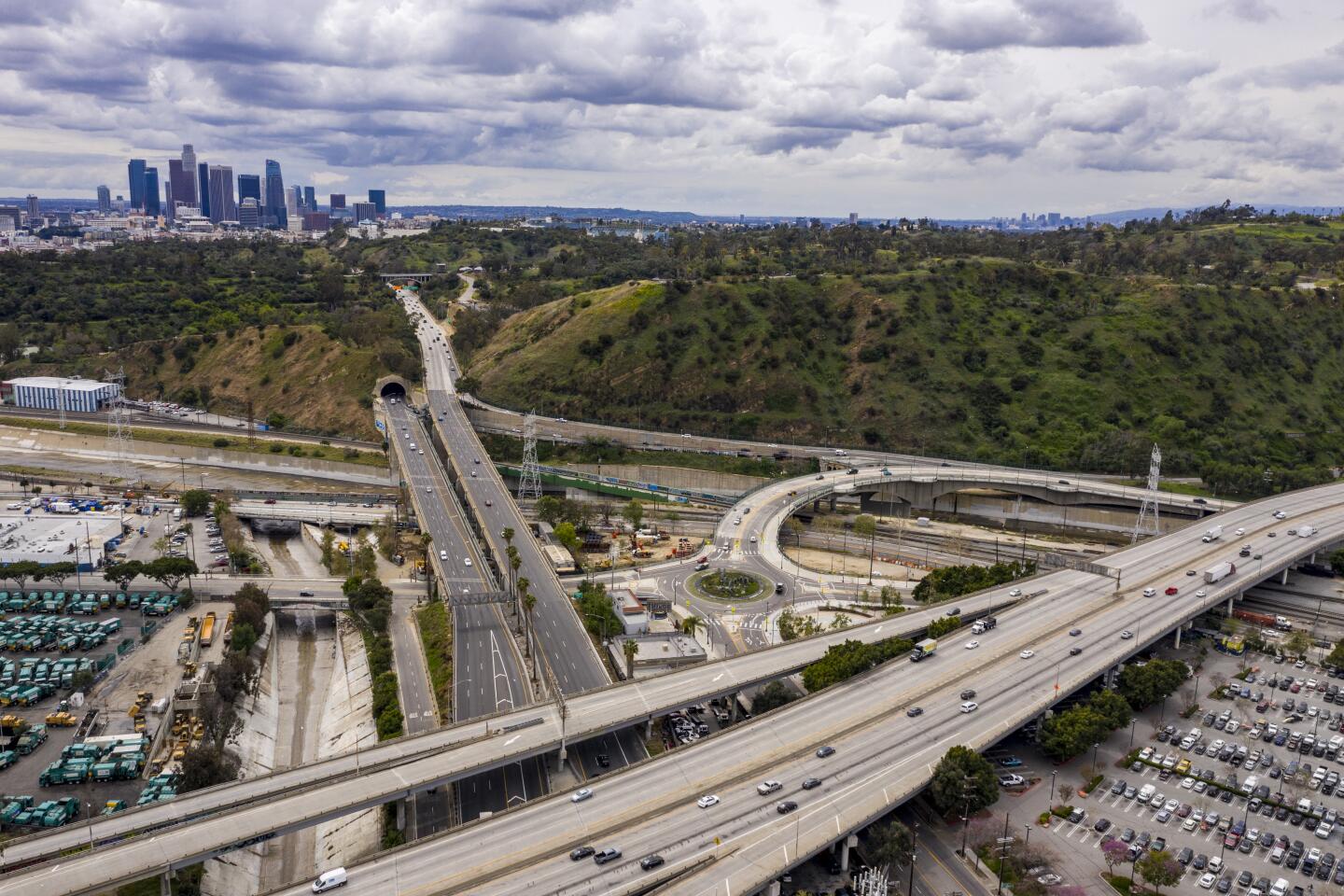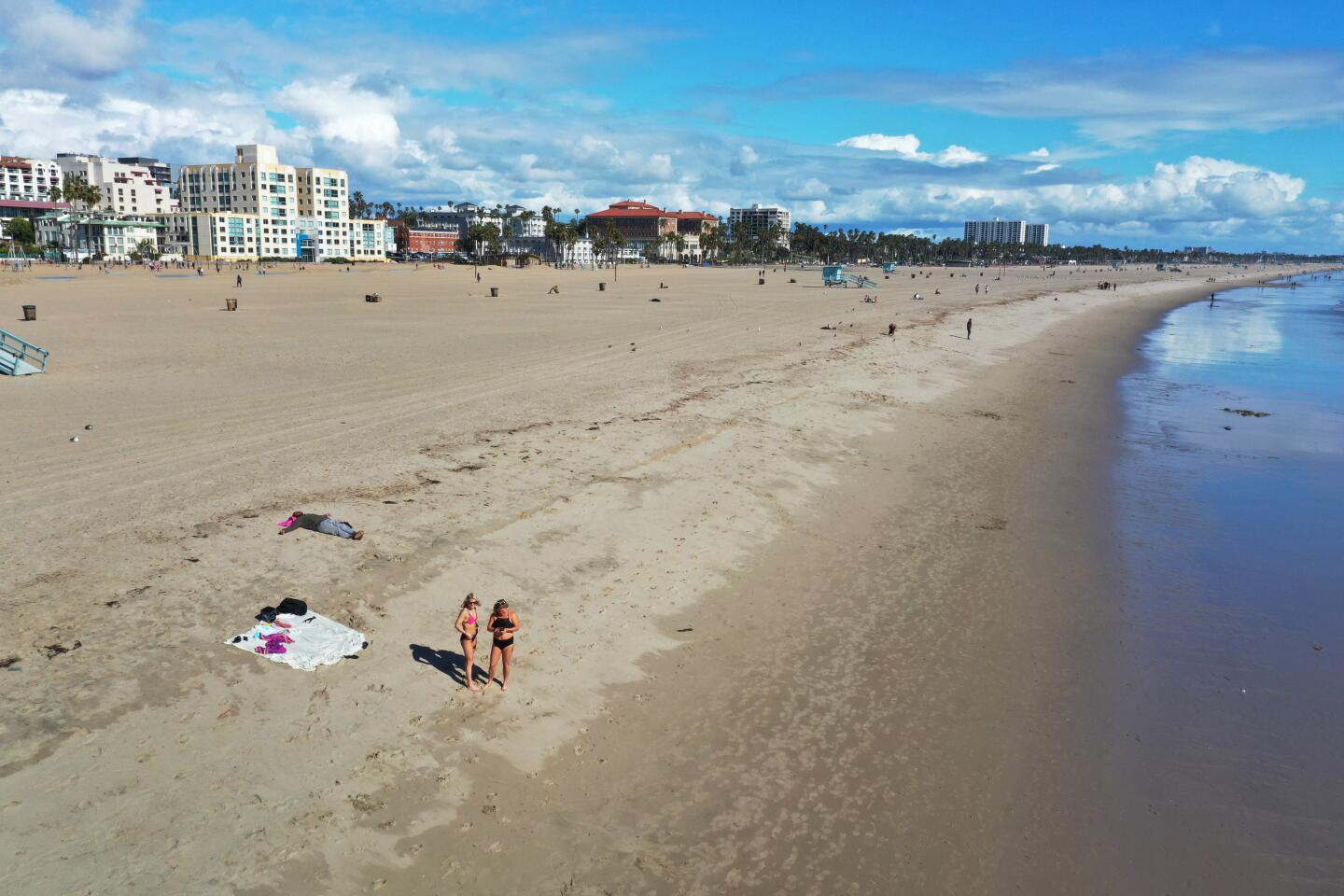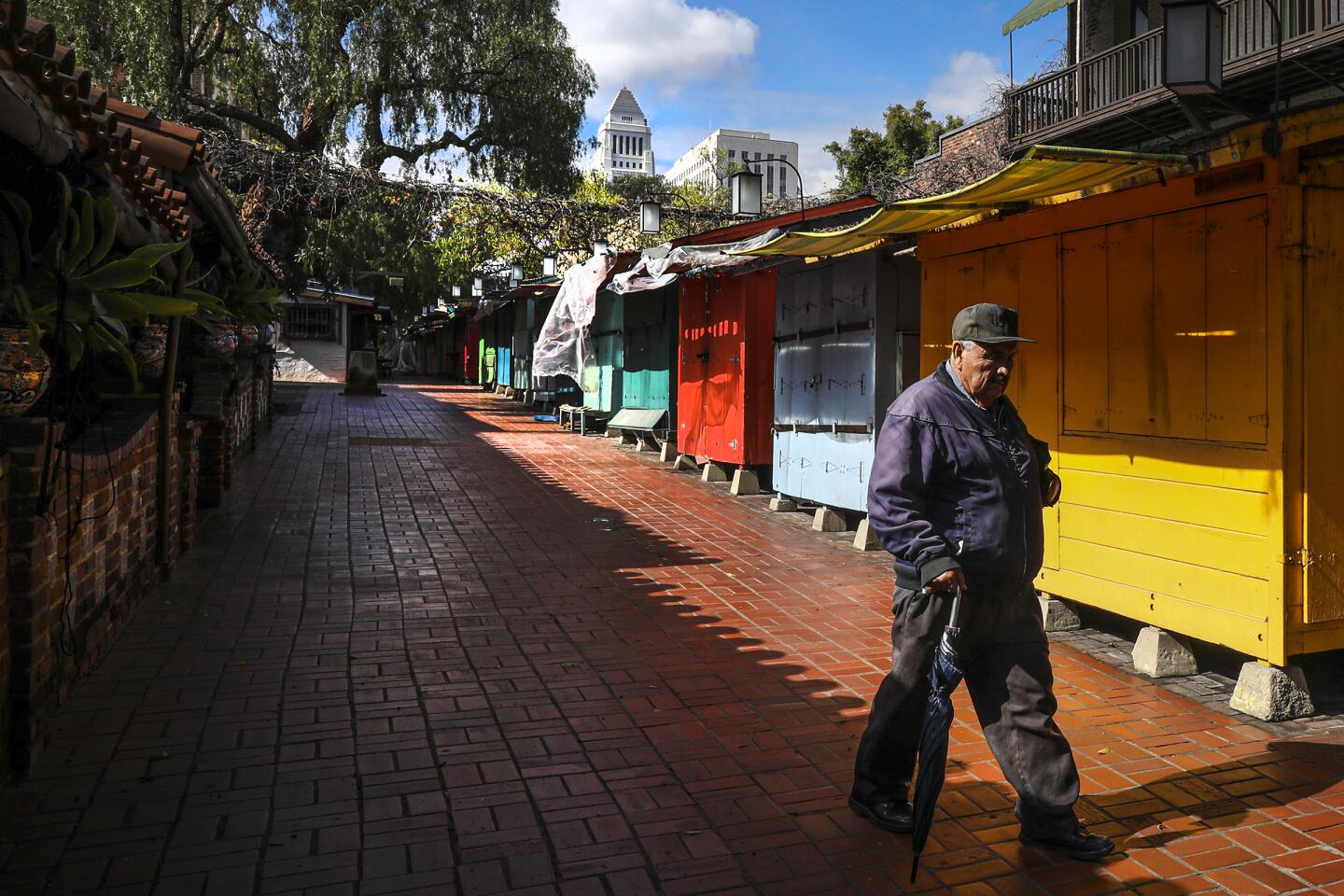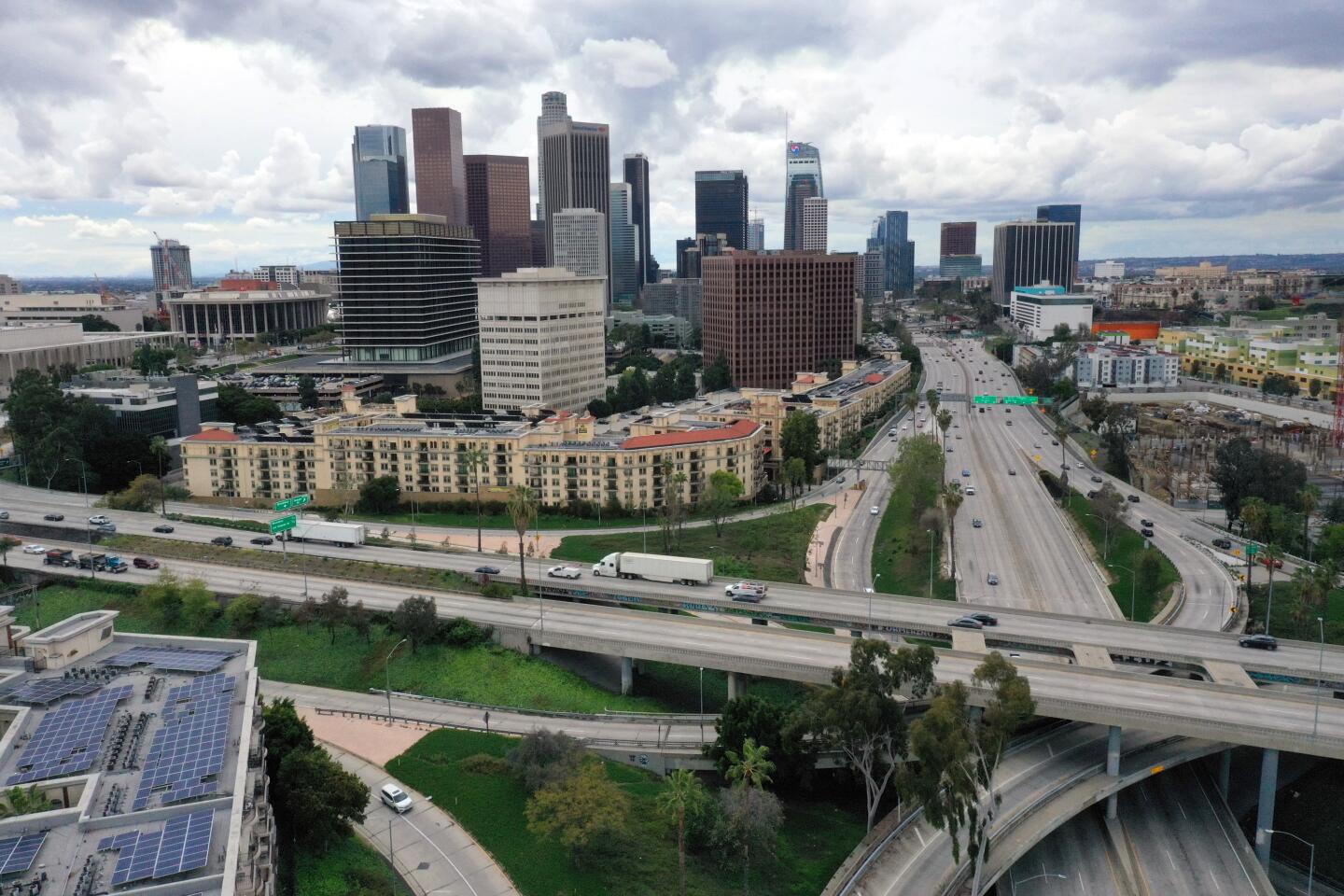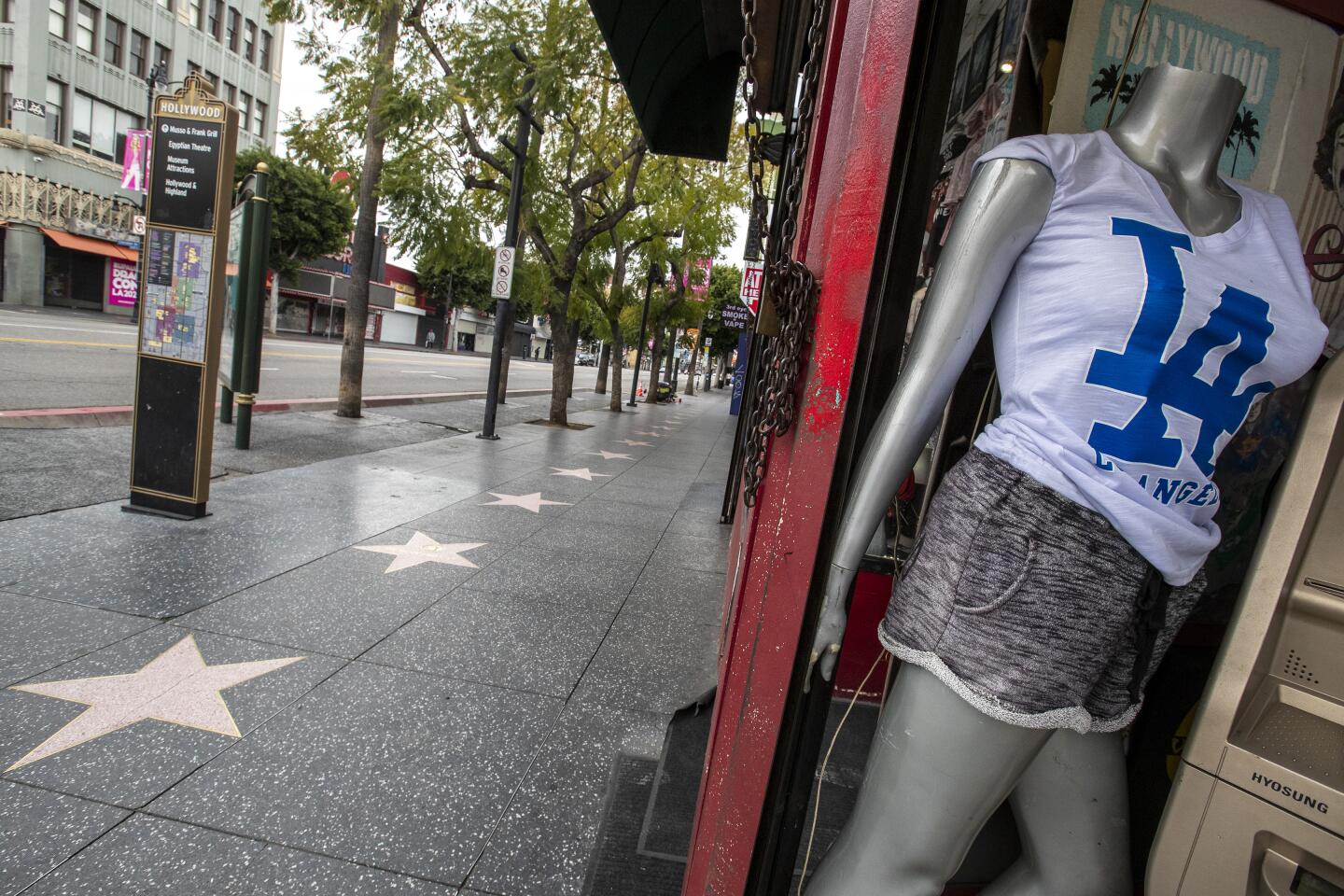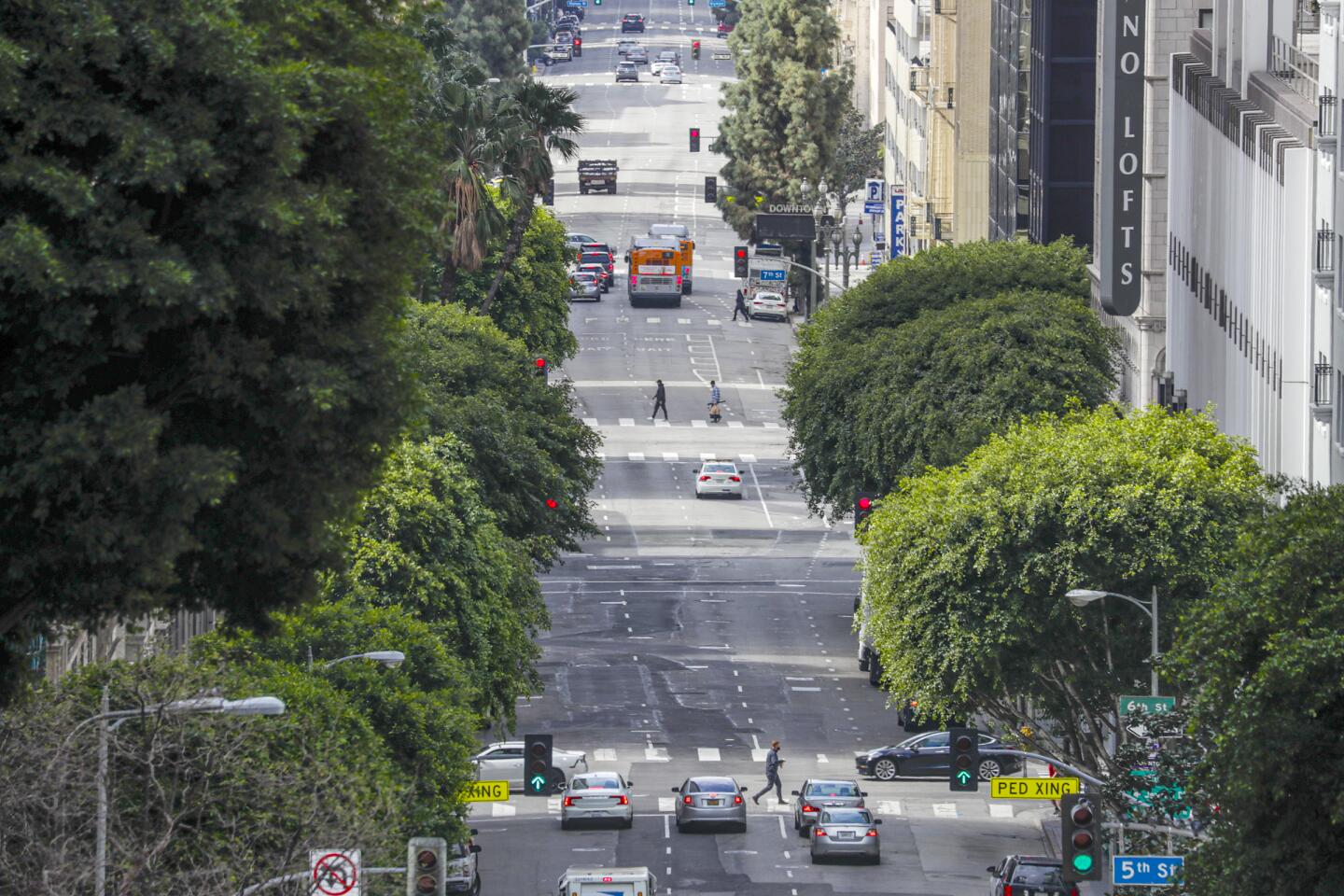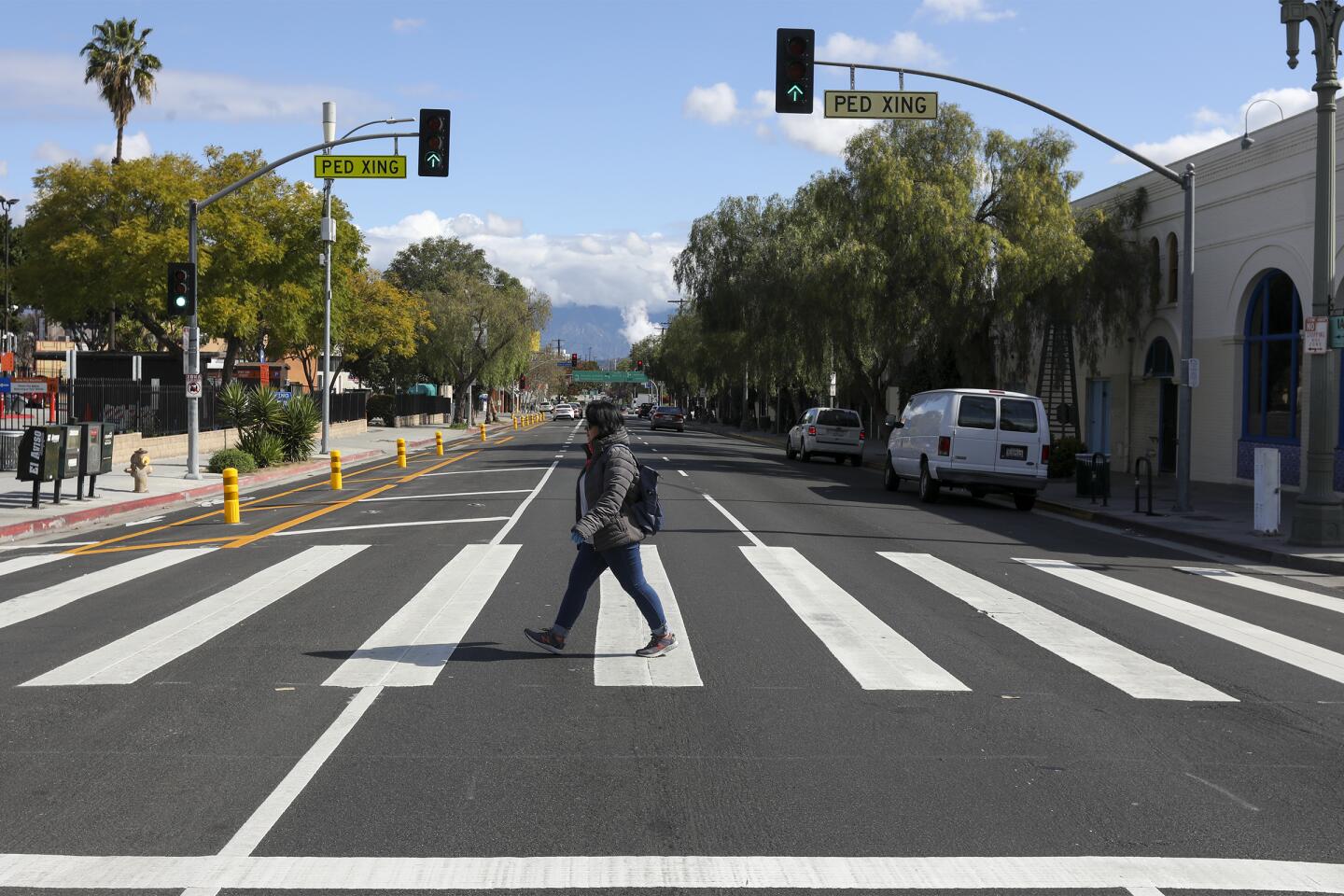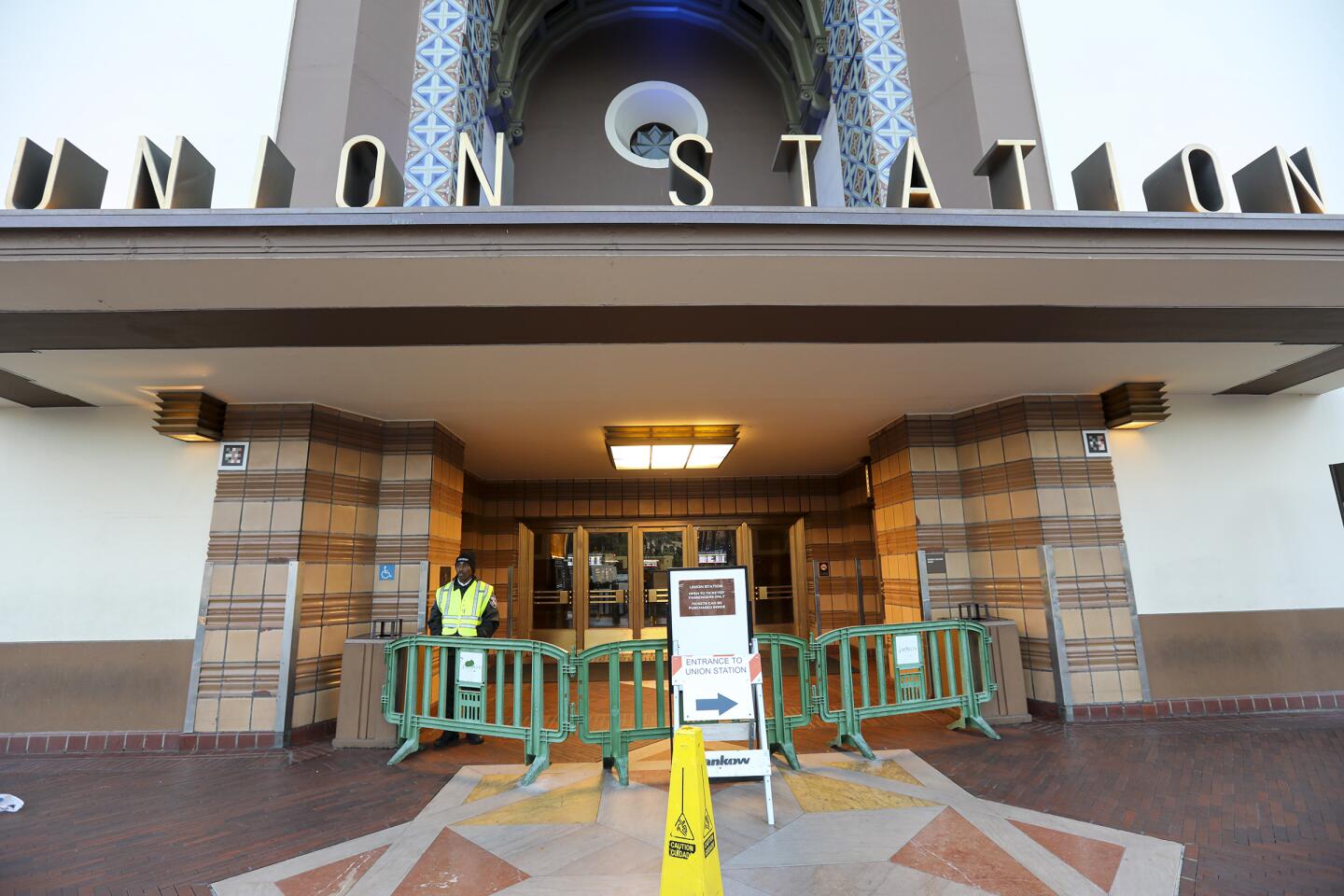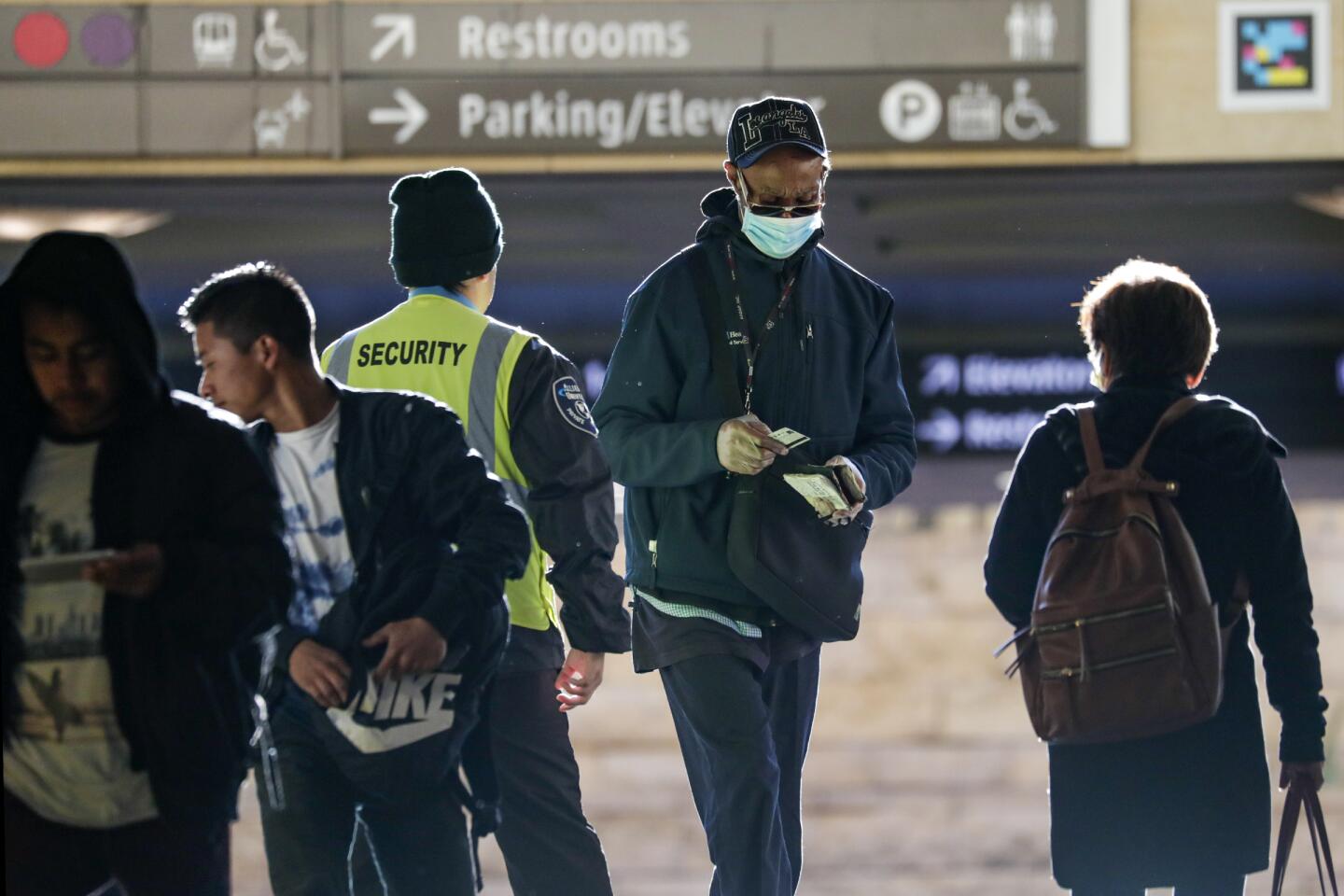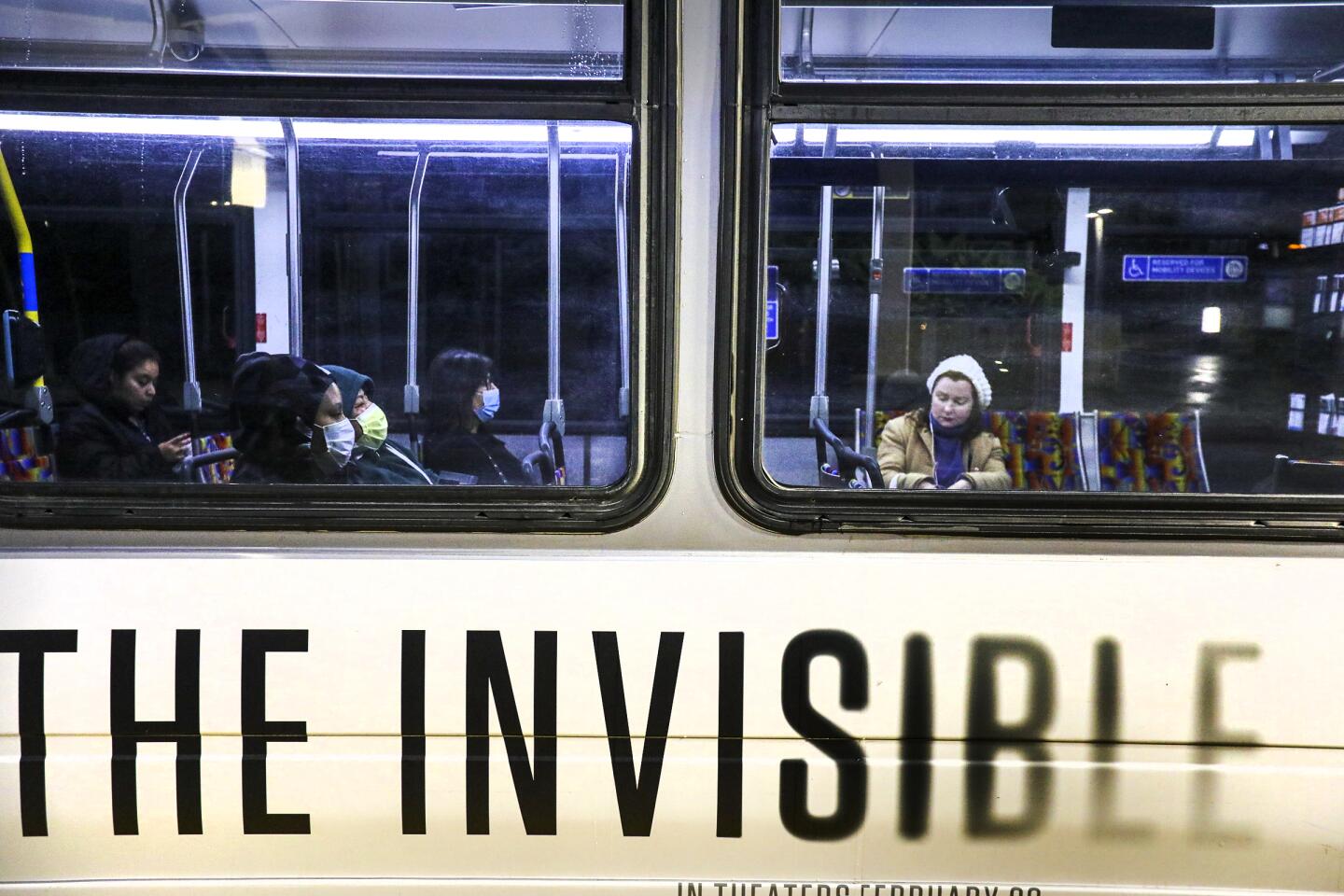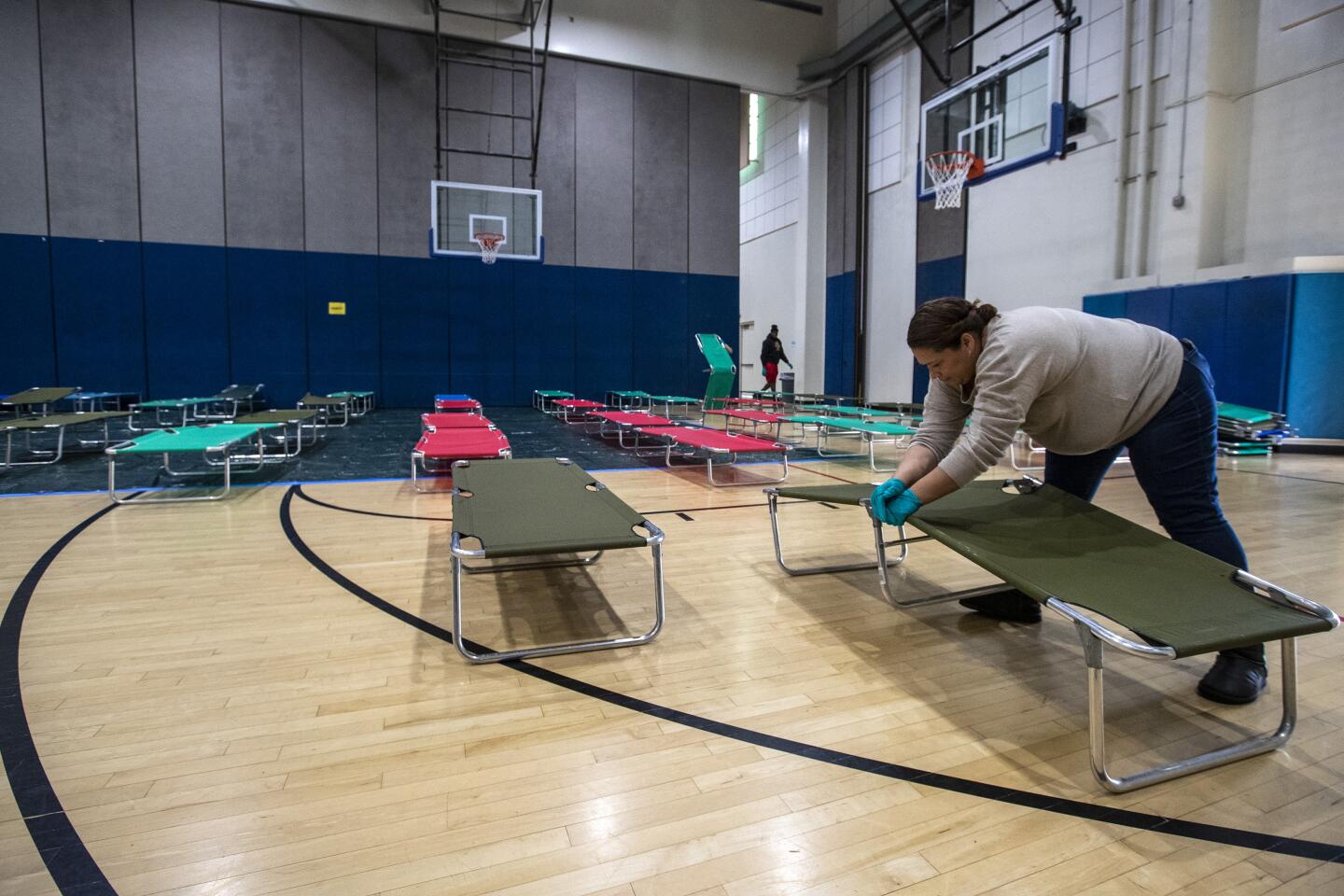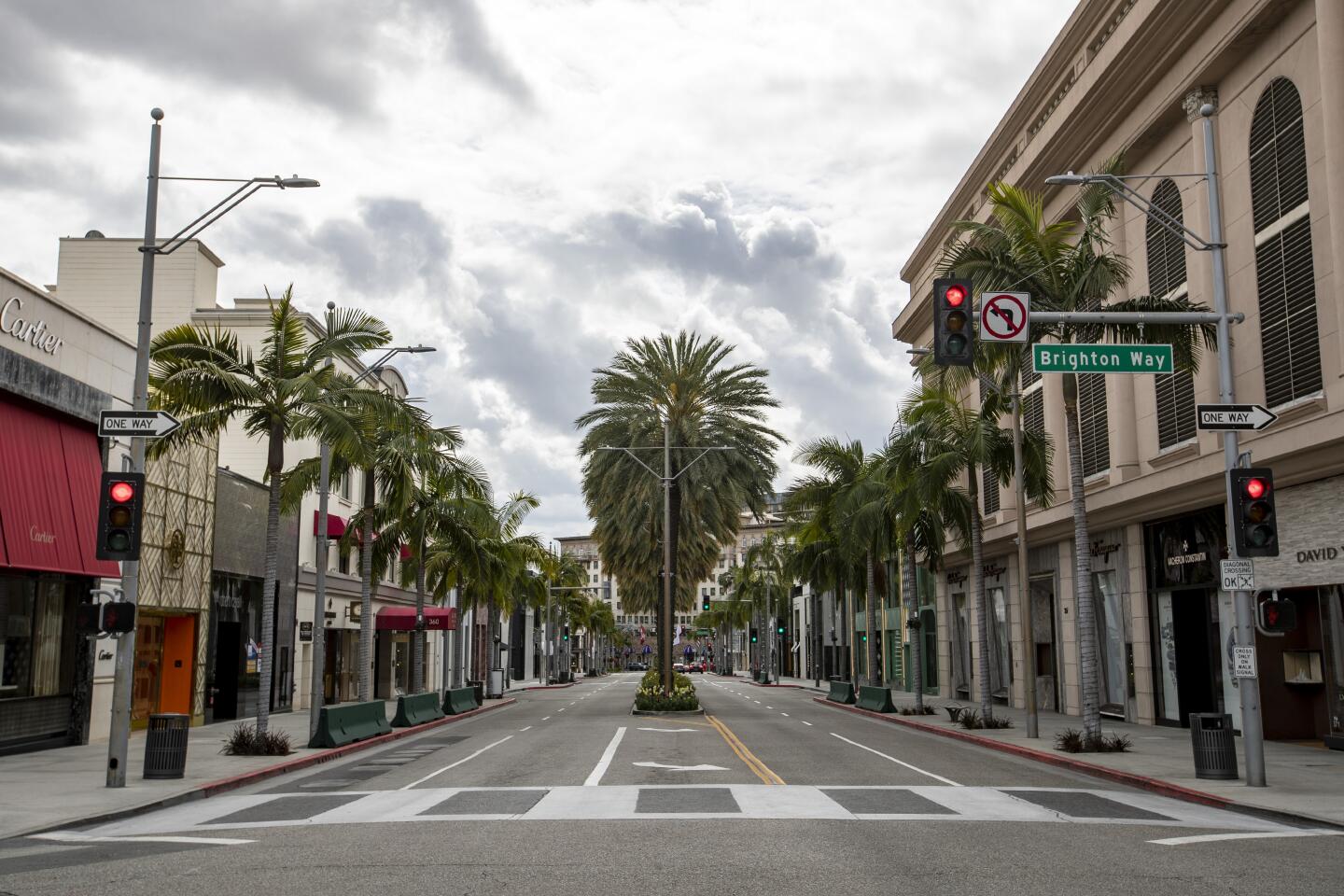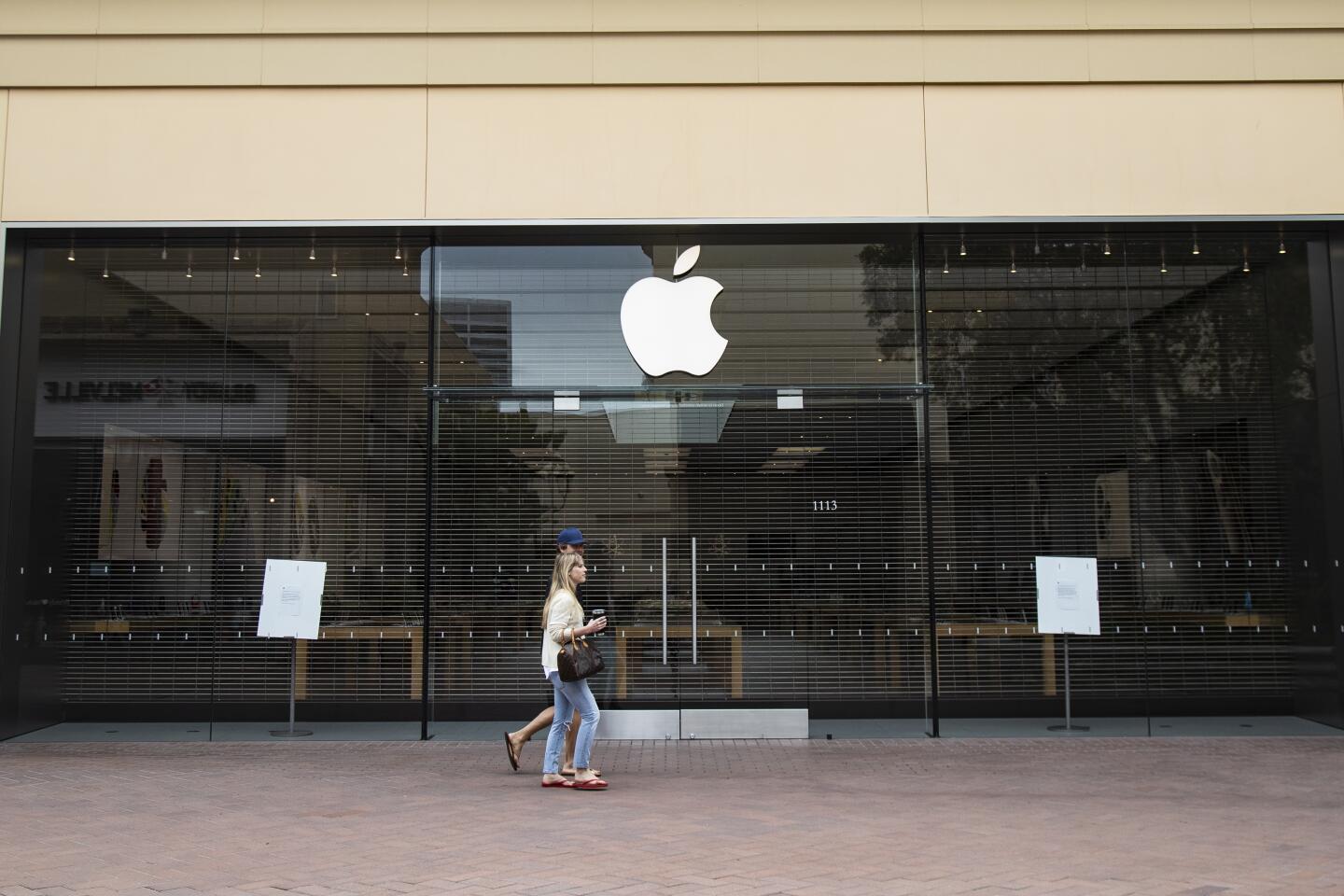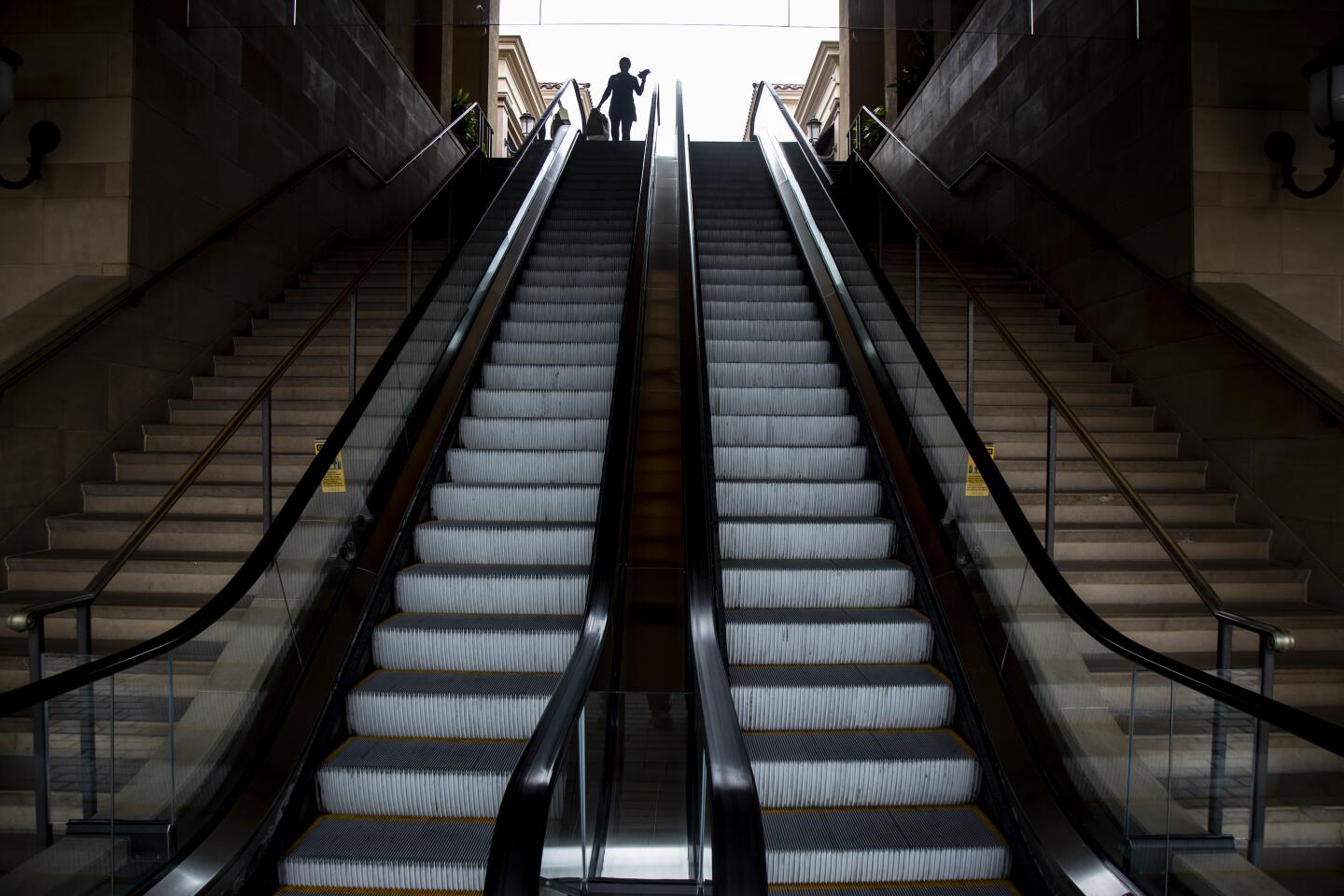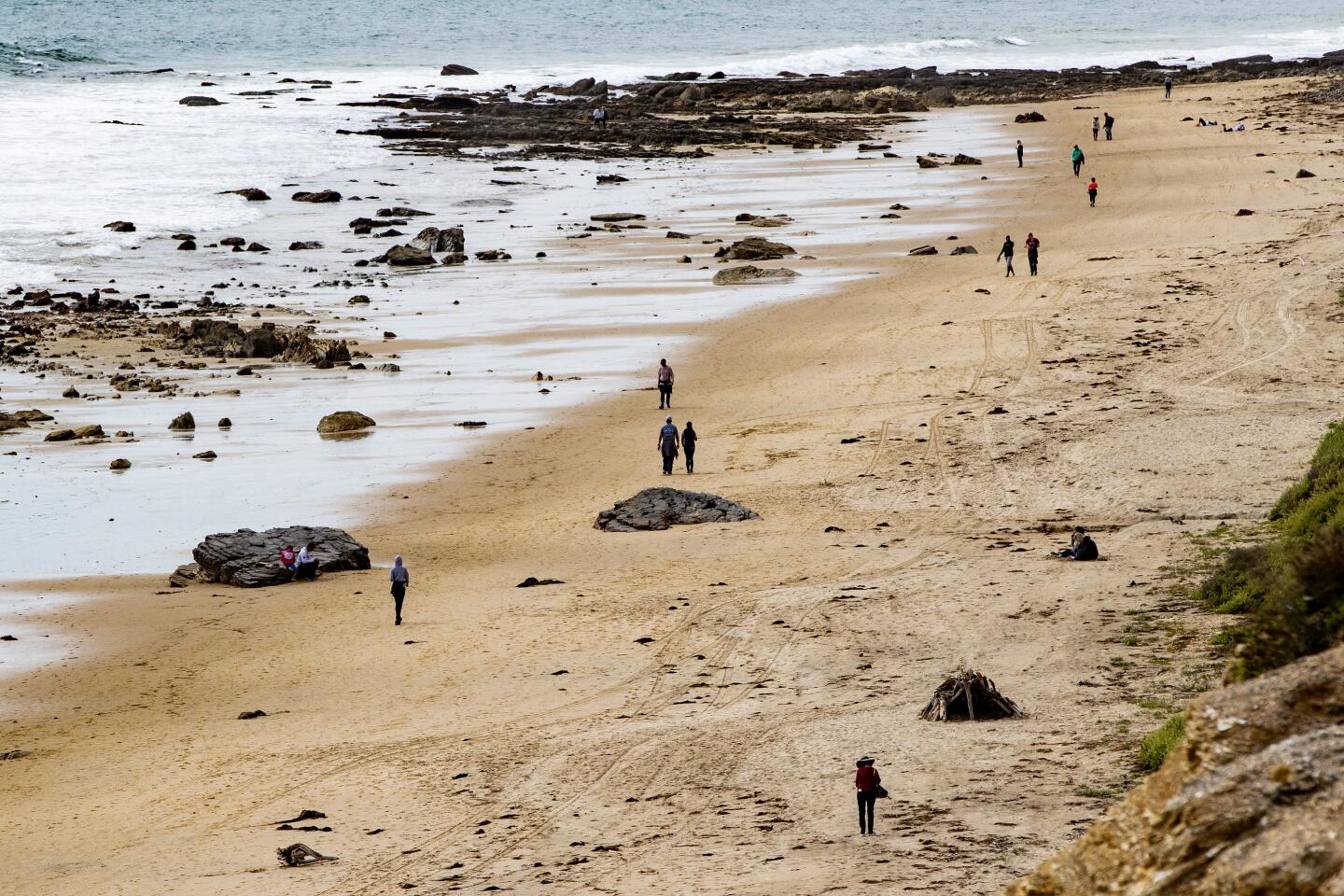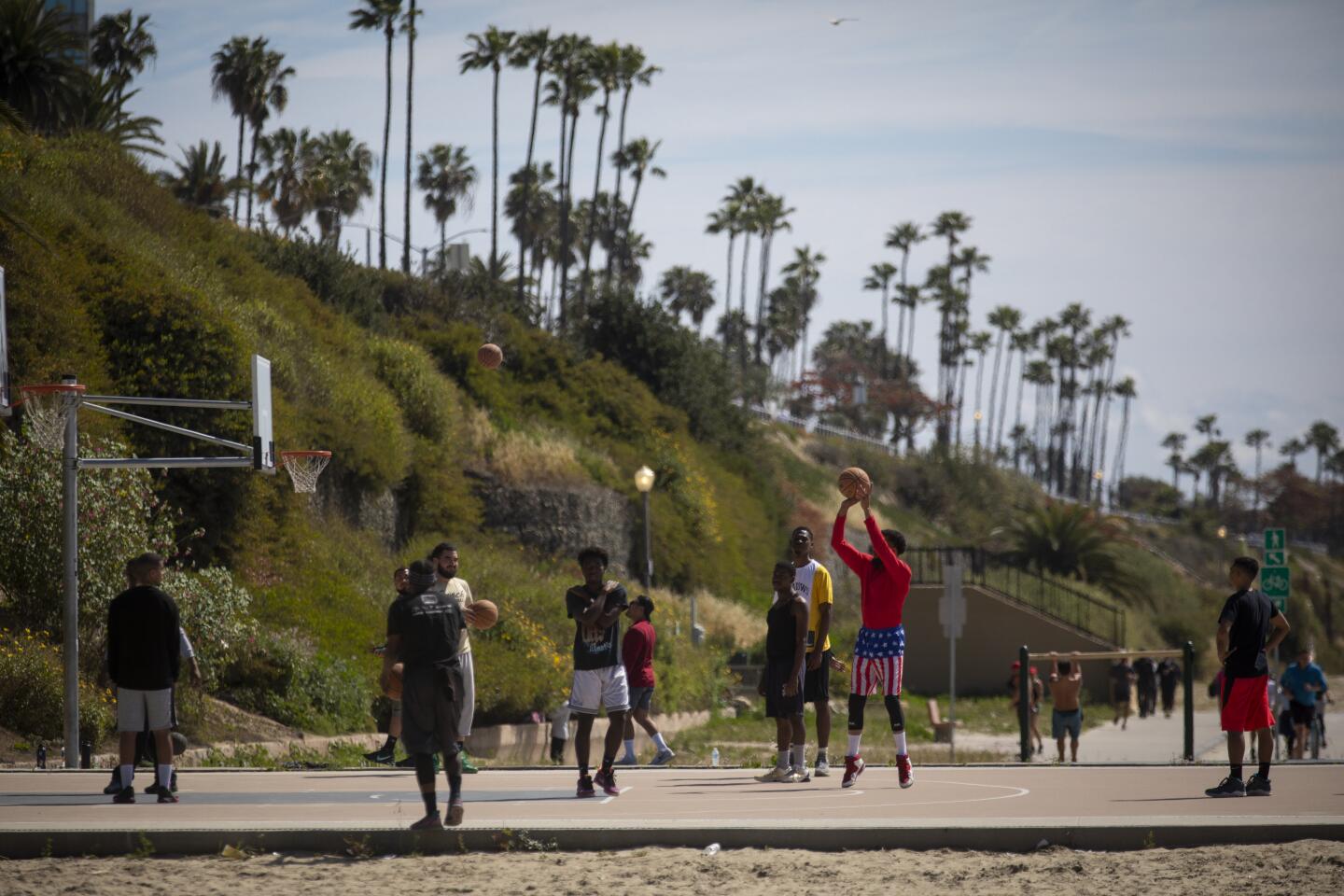Here are the new rules as Californians are ordered to stay home in response to coronavirus
- Share via
Gov. Gavin Newsom’s sweeping order Thursday evening for Californians to stay home to slow the spread of the coronavirus outbreak will dramatically restrict public movement.
The governor’s office provided a list of how the order will play out:
What stays open:
- Pharmacies
- Food: Grocery stores, farmers markets, food banks, convenience stores, restaurant takeout and delivery services
- Banks
- Gas stations
- Laundromats and other laundry services
- Essential state and local government functions, including law enforcement and offices that provide government programs and services.
What is closed:
- Bars and nightclubs
- Entertainment venues
- Gyms and fitness studios
- Public events and gatherings
- Convention centers
- Restaurant dine-in service
What is behind this?
Officials hope telling people to stay home and restrict social interactions will slow the spread of the virus and ultimately prevent hospitals from being overrun with sick patients.
Newsom asked Californians to practice social distancing when performing “necessary activities.”
“We’re going to keep the grocery stores open,” Newsom said. “We’re going to make sure that you’re getting critical medical supplies. You can still take your kids outside, practicing common sense and social distancing. You can still walk your dog.”
No time frame was set for when the order would end.
What are exemptions from the order?
Newsom’s action orders “all individuals living in the state of California to stay home or at their place of residence, except as needed to maintain continuity of operation of the federal critical infrastructure sectors.”
The government order links to a Department of Homeland Security document that lists 16 “critical infrastructure sectors whose assets, systems, and networks, whether physical or virtual, are considered so vital to the United States that their incapacitation or destruction would have a debilitating effect on security, national economic security, national public health or safety, or any combination thereof.”
Defense Industrial Base Sector
Healthcare and Public Health Sector
Nuclear Reactors, Materials, and Waste Sector
Water and Wastewater Systems Sector
Orange County
Orange County health officials have not issued a new order in light of Newsom’s latest directive that would change a county order issued Wednesday, which itself was clarifying a Tuesday order that placed new restrictions on gatherings and some businesses as a precaution against the coronavirus.
However, the county Health Care Agency did say that its “order and guidance does not supersede any conflicting or more restrictive orders issued by the state of California or federal governments.”
The county confirmed in a statement Friday that the state order takes priority over the county’s.
For updates and other information, visit ochealthinfo.com.
The Health Care Agency on Thursday increased the tally of coronavirus cases in the county to 53, up from 42 the day before and 29 on Tuesday.
Of the latest count, 25 were determined to be travel-related, seven due to contact with a known case, 19 that were “community-acquired” — not related to travel or contact with a known case — and two that are under investigation.
The county has had no deaths related to the illness, according to the agency.
The agency said 589 people have been tested by its Public Health Lab and by commercial labs and that the Public Health Lab has kits available to test 942 specimens.
The Orange County Transportation Authority said Friday that all its bus routes will temporarily shift to a Sunday schedule every day beginning Monday “to help protect the health of OCTA employees” during the coronavirus crisis.
The Sunday schedule, which provides about 40% of the typical amount of weekday bus service, is listed by route at OCBus.com.
The OC Access paratransit system for riders with physical or cognitive limitations will continue at full service levels, OCTA said.
The agency said the service reduction reflects a sharp decline in ridership as Orange County residents and workers follow guidance from health experts to stay home, avoid large gatherings and work remotely.
Ridership has dropped more than 50% in the past two weeks, OCTA said.
Los Angeles
The city of Los Angeles issued a restrictive order requiring all nonessential businesses to close, with companies able to operate only through work-at-home arrangements. The order also bans all public gatherings of any size outside homes.
Under the city’s new order, officials said residents are permitted to:
- Go to the grocery store
- Go to the pharmacy to pick up medications and other healthcare necessities
- Go to medical appointments (check with your doctor or provider first)
- Take a walk, ride your bike and be in nature for exercise — just keep at least six feet between you and others in the community
- Walk your pets and take them to the veterinarian if necessary
- Help someone to get necessary supplies
Residents are not allowed to:
- Go to work unless providing essential services as defined by the order
- Visit friends and family if there is no urgent need
- Maintain less than six feet of distance from others when you go out
- Travel to or from a job outside the city, unless to perform essential activities
- Travel to or from a vacation home outside the city
- Visit loved ones in a hospital, nursing home, skilled nursing facility or other residential care facility
These are considered essential services:
- City/county government services
- Healthcare providers
- Food and grocery service
- Hardware stores and nurseries
- Plumbers, electricians, exterminators, custodial/janitorial workers, handyman services, funeral home workers and morticians, moving services, HVAC installers, carpenters, landscapers, gardeners, property managers, private security personnel and others who provide services to maintain the safety, sanitation and essential operation of properties and other essential activities
- Banks
- Organizations and businesses that provide food, shelter, social services and other necessities of life for economically disadvantaged or otherwise needy individuals (including gang prevention and intervention and domestic violence agencies)
- Laundromats/laundry service
- Newspapers, magazines, television, radio, podcasts and other media services
- Educational institutions, including public and private K-12 schools, colleges, and universities — for purposes of facilitating distance learning or performing essential functions provided that social distancing of six feet per person is maintained to the greatest extent possible
Daily Pilot staff contributed to this report.
Updates
9:30 a.m. March 20, 2020: This article was originally published at 8:49 a.m. and has been updated with additional information.
All the latest on Orange County from Orange County.
Get our free TimesOC newsletter.
You may occasionally receive promotional content from the Daily Pilot.
